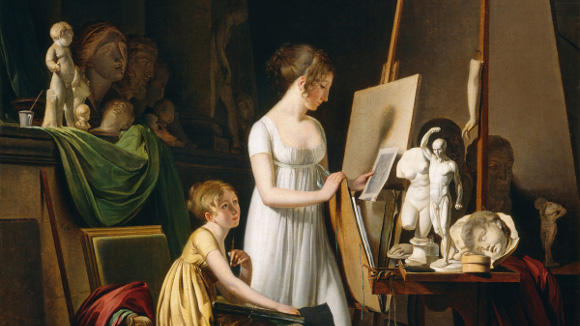On the Aesthetic Education of Man, Schiller

A Painter's Studio, Louis-Léopold Boilly, c. 1800
But how does the artist secure himself against the corruptions of his time, which everywhere encircle him? By disdaining its opinion. Let him look upwards to his own dignity and to Law, not downwards to fortune and to everyday needs.
It is common to say that philosophy is about three things: the true, the good, and the beautiful. We've sampled widely across philosophy, but most of our reading has been about the good, because we are looking for practical advice on how to live. Modern academic philosophy, by contrast, is mostly about the true, because you can endlessly turn out answers to “how do we know what we know?” and academics need jobs, after all.
Beauty, however, is the most neglected of the trio. Maybe because it's easy to dismiss as an unnecessary luxury, something we should give up for the sake of some other worthy goal. Maybe because of the slippery task of trying to define what it is and the subsequent escape into subjectivity. You've heard all that noise about the “eye of the beholder”, “that's YOUR opinion”, “one man's trash” and so forth.
But let's not give the bromides too much credit. One man that definitely didn't was the 18th century German Friedrich Schiller, who wrote On the Aesthetic Education of Man (sometimes rendered in English as Aesthetical Letters or several similar variations), a work that respects Beauty as at least equal to her sisters Truth and Goodness. Shocked by the descent of the French Revolution, which seemed to begin with high-minded ideals, into blood and madness, Schiller asks: how could this have been avoided? If political revolution doesn't work, what conditions are necessary to really produce human flourishing?